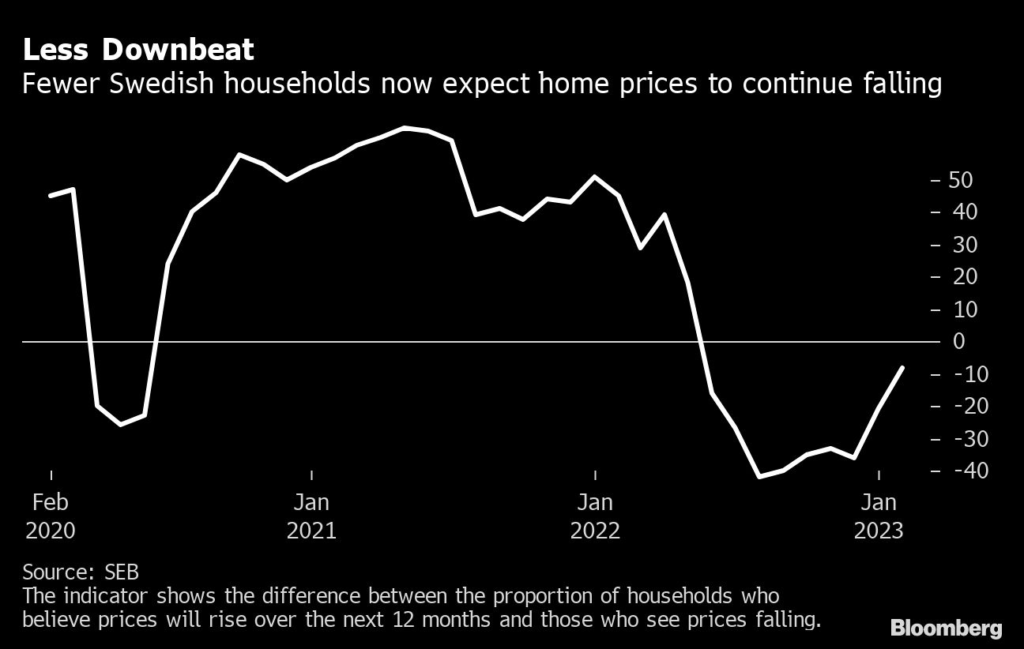Swedish households’ perceptions of where home prices may be headed have turned less pessimistic in recent months, as electricity prices have moderated and there’s hope that interest-rate increases may be nearing an end.
(Bloomberg) — Swedish households’ perceptions of where home prices may be headed have turned less pessimistic in recent months, as electricity prices have moderated and there’s hope that interest-rate increases may be nearing an end.
An increasing number of households now expect a turnaround in the housing market, after a fast cadence of rate hikes had fed into the cost of mortgages and sent property prices down in one of the worst declines globally, according to a survey by SEB AB.
The data on Monday showed an increase in the SEB housing price indicator to -8 this month from -21 in January.
The reading marks a second month of improvement, as the share of people expecting prices to fall decreased to 41% from 49%, while the share expecting prices to rise increased to 33% from 28%.
The report is one of the most important leading indicators for the Swedish housing market, which has seen a 16% price drop since early last year.
SEB said the indicator value is consistent with some additional months of declines, at a slower pace than previously, projected to take the total contraction to 20% from the peak.
“The improvement in housing market sentiment in January was not a one-off and was followed by almost as strong a rise in sentiment in February,” SEB economists Daniel Bergvall and Marcus Widen said.
“Although headwinds for households have not disappeared there is at least more certainty when it comes to rates and inflation.”
The SEB survey, based on 1,000 interviews, shows the difference between the proportion of households who believe prices will rise over the next 12 months and those who see prices falling.
Last week, it emerged that a key housing indicator watched by the central bank will no longer be made publicly available, obscuring developments in the property market.
The banks’ economists also noted, however, that expectations of rate increases from the Swedish central bank decreased in the latest survey, which indicates that households “might not have realized the full cost increase from higher rates.” The Riksbank raised its key interest rate by half a percentage point last week to 3%, and said it plans more hikes to tackle rampant inflation.
–With assistance from Joel Rinneby.
More stories like this are available on bloomberg.com
©2023 Bloomberg L.P.










